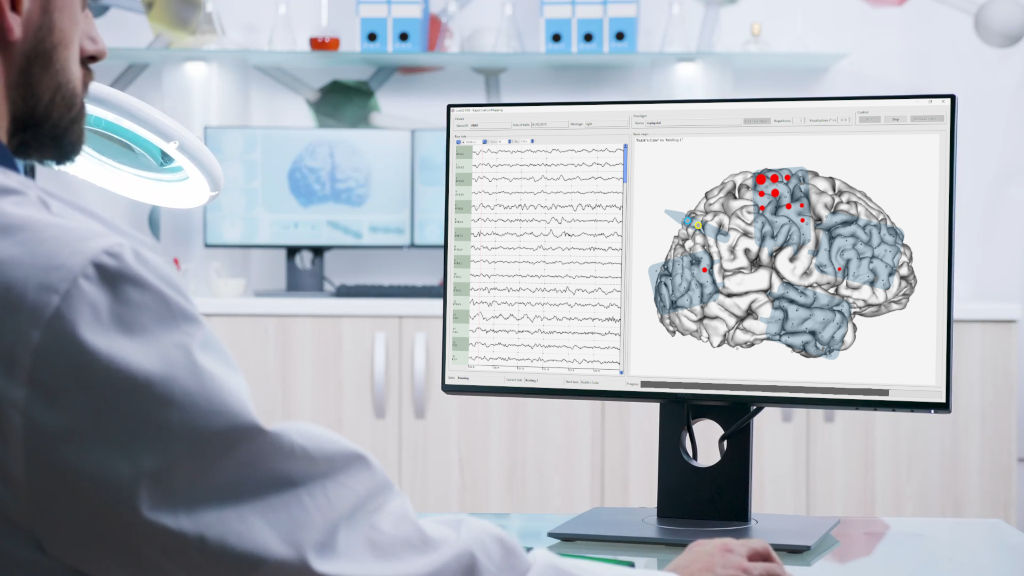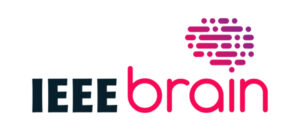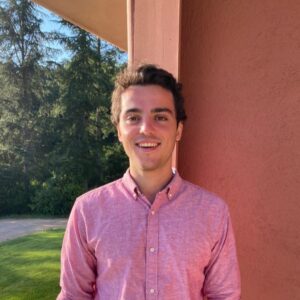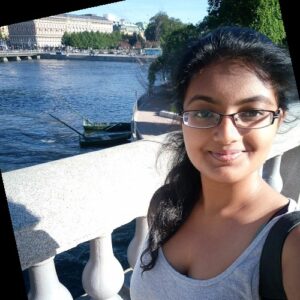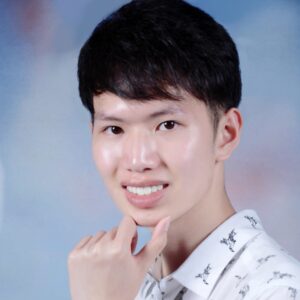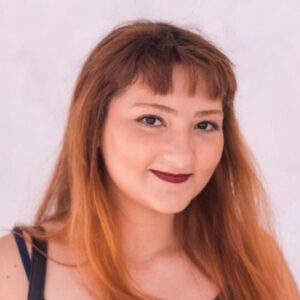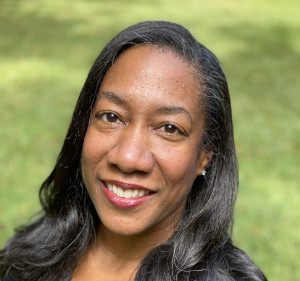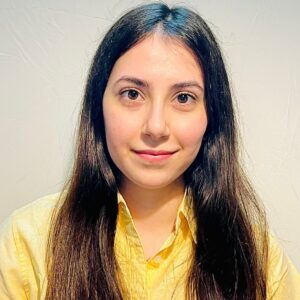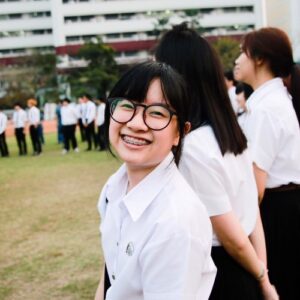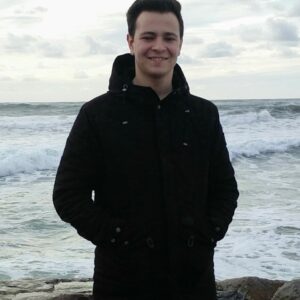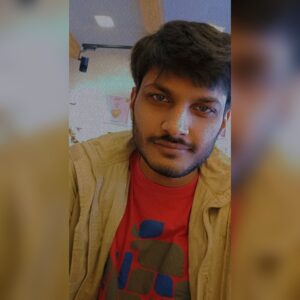
BCI & NEUROTECHNOLOGY SPRING SCHOOL 2023
April 17-26, 2023 (GMT Vienna)
The virtual Spring School was g.tec’s educational highlight of the year. 15787 persons participated from 113 countries making it the biggest neurotechnology event of the world. The BR41N.IO Hackathon had 51 teams with 340 persons from 57 coutries. g.tec handed out 14 credits for 140 hours of education! 122 speakers from 84 Universities and companies from all around the world gave fascinating key-note talks. Thank you very much for being part of it.

Learn from renowned, international experts and join the BR41N.IO Designers’ Hackathon to create your own brain-computer interface or biomedical applications. This event is targeting biomedical engineers, neuroscientists, developers, makers, neurologists, neurosurgeons, therapists or researchers active in the brain-computer interface space and neurotechnology.
Elite universities typically require you to register for 14 credits per semester, which costs about $50,000 USD. We provide cutting-edge education for free and have an exam at the end of the Spring School.
YOUR BENEFITS
- Become a Hosting Institution for the Spring School 2023 and participate virtually with your class
- Participate in the BR41N.IO Designers' Hackathon virtually with your class
- Get hands-on experience in the BR41N.IO Designers' Hackathon
- Video recordings will be available for 1 week
- Win a Unicorn Hybrid Black in the social media challenge
- Get a participation certificate with 14 credits
- Add The Spring School to your CV
DAY 1 - APRIL 17
CUTTING-EDGE BRAIN-COMPUTER INTERFACES
08:00 CEST | The brain-computer interface Universe
Christoph Guger, g.tec medical engineering GmbH, Schiedlberg (AT)
09:00 CEST | ECoG and stereo-EEG for BCIs: hardware and software requirements
Christoph Kapeller, g.tec medical engineering GmbH, Schiedlberg (AT)
10:00 CEST | BCI applications for wellbeing and cognitive decline neurobiomarkers
Tomasz M. Rutkowski, RIKEN AIP & The University of Tokyo, Tokyo (JP)
11:00 CEST | g.tec Suite – real-time processing, off-line analysis and connect the brain with chatGPT
Martin Walchshofer, g.tec medical engineering GmbH, Schiedlberg (AT)
12:00 CEST | Closed-loop experiments with EEG and functional electrical stimulation
Alexander Lechner, g.tec medical engineering GmbH, Schiedlberg (AT)
13:00 CEST | The Unicorn Game interface and how to use it in 2D/3D
Bernard Wong, Martin Walchshofer, g.tec medical engineering GmbH, Hong Kong (HK)
14:00 CEST | BCI design to tackle developmental language disorders
Joao Araujo, University of Cambridge, Cambridge (UK)
15:00 CEST | Speech decoding and synthesis from intracranial signals
Dean Krusienski, Virginia Commonwealth University (US), Virginia (USA)
16:00 CEST | EEG technology to study substance use disorders
Muhammad Parvaz, Mount Sinai, New York (USA)
17:00 CEST | Robotic Couture – BCIs in Fashion
Anouk Wipprecht, Fashion Designer, Florida (USA)
18:00 CEST| High-gamma mapping and gamma echo
Peter Brunner, Washington University School of Medicine, St. Louis, MO (USA)
19:00 CEST | Wearables and future applications
Nataliya Kosmyna, Massachusetts Institute of Technology, Massachusetts (USA)
20:00 CEST | Electrocardiographic imaging of the human heart – methods and clinical applications
Gabriella Captur, University College London, London (UK)

DAY 2 - APRIL 18
INVASIVE BRAIN-COMPUTER INTERFACES & NEUROMODULATION
08:00 CEST| Optimizing open-loop and closed-loop brain stimulation procedures
Johannes Grünwald, g.tec medical engineering GmbH, Schiedlberg (AT)
09:00 CEST| Decoding signals from invasive brain-computer interfaces
David B. Grayden, University of Melbourne, Victoria (AU)
10:00 CEST| Use invasive and non-invasive neuromodulation to better understand the pathology and neurology in movement disorders
Shenghong He, Oxford University, Oxford (UK)
11:00 CEST| Walking naturally after spinal cord injury using a brain-spine interface
Henri Lorach, EPFL, Geneva (CH), 1st place winner BCI Award 2022
12:00 CEST| Cortical dynamics and neurotechnological challenges
Mavi Sanchez-Vives, IDIBAPS, Barcelona (ES)
13:00 CEST| Rhythmic entertainment in cortical dynamics
Kai Miller, Mayo Clinic, Rochester, MI (USA)
14:00 CEST| Neurotechnologies: from neurosurgery to rehabilitation
Milena Korostenskaja, The Institute of Neuroapproaches, Orlando, Florida (USA)
15:00 CEST| Spinal cord stimulations improves arm and hand function in people with chronic stroke
Douglas Weber, Carnegie Mellon University, Pittsburgh, Pennsylvania (USA)
16:00 CEST| Towards mapping physiological and pathological sites of brain using computational intelligence
Nuri Firat Ince, University of Houston, Houston, Texas (USA)
17:00 CEST| Epilepsy and Parkinson monitoring
William Speier, UCLA, Los Angeles, California (USA)
18:00 CEST| Innovations in brain mapping to guide neuromodulation for epilepsy and beyond
Jonathon James Parker, Mayo Clinic, Arizona (USA)
19:00 CEST| Neuroprosthetic technologies to restore hand functions
Elena Losanno, EPFL, Lausanne (CH), 2nd place winner BCI Award 2022
20:00 CEST| Cross regional coordination of neural activity in the human brain
James Stieger, Stanford University, Stanford, California (USA)
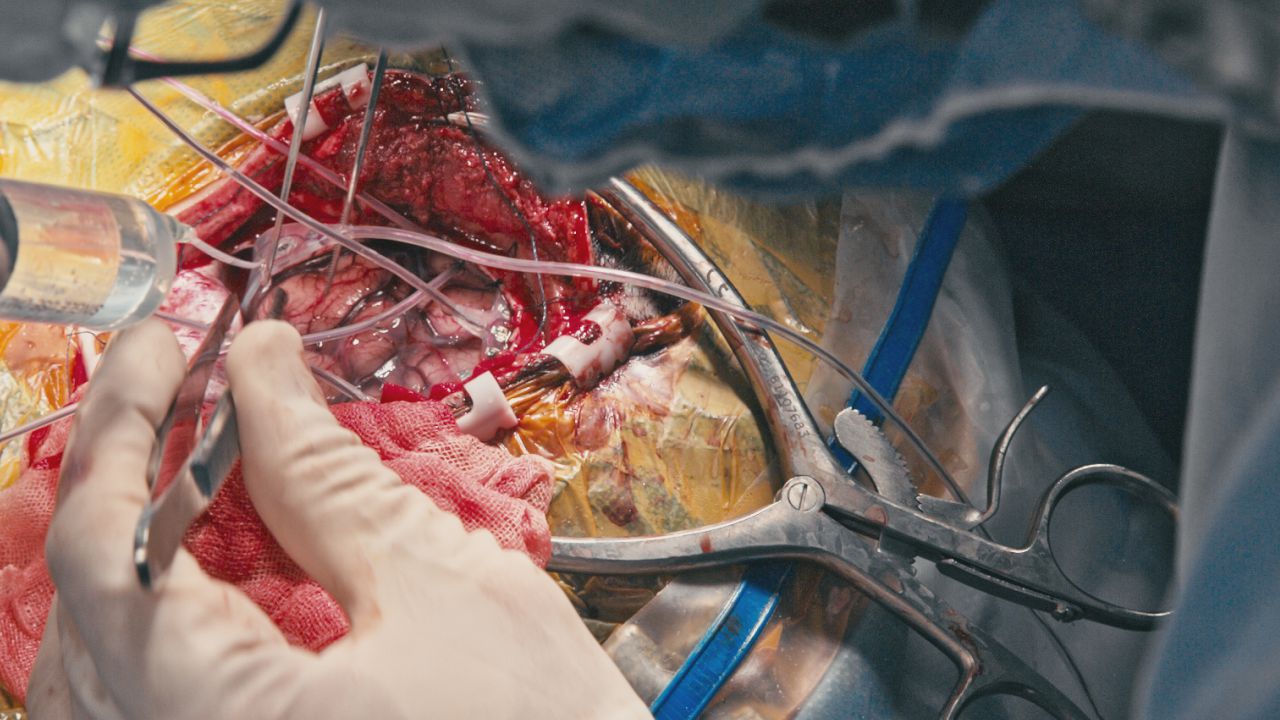
DAY 3 - APRIL 19
APPLICATION OF MACHINE LEARNING IN BCIs
08:00 CEST| AI in EEG Applications
Theerawit Wilaiprasitporn, Vidyasirimedhi Institute of Science & Technology, Chang Wat Rayong (TH)
09:00 CEST| Deep learning in brain computer interfaces
Nadia Mammone, Universita Mediterranea di Reggio Calabria (IT)
10:00 CEST| EEG in action – extracting fMRI guided EEG biomarkers for therapy
Oded Kraft, Graymatters, Haifa (IL)
11:00 CEST| User training in motor imagery brain-computer interfaces
Maryam Alimardani, Tilburg University, Thilburg (NL)
12:00 CEST| Engagement based BCIs
Angela Natalizio, Polytechnic University of Turin, Turin (IT)
13:00 CEST| Does Your Brain Know you? – Introduction to Brain-Biometrics for Identity Authentication
Nibras Abo Alzahab, Universitá Politecnica Delle Marche (IT)
14:00 CEST| Time series data augmentation strategy based on a decomposition-recombination method
Jordi Solé-Casals, Universitat de Vic, Vic (ES)
15:00 CEST| g.PANGOLIN – Ultra high-density EEG grids
Leo Schreiner, g.tec medical engineering GmbH, Schiedlberg (AT)
16:00 CEST| Non-Invasive versus Invasive Brain-Computer Interfaces
Dingguo Zhang, University of Bath, Bath (UK)
17:00 CEST| Towards fMRI’s digital twin: subcortical BOLD is only deep-learning away from scalp EEG
Alexey Ossadtchi, Higher School of Economics, Moscow (RU)
18:00 CEST| Hyperscanning – EEG recordings from multiple subjects with cognitive load
Angela Natalizio, Polytechnic University of Turin, Turin (IT), Slobodan Tanackovic, g.tec medical engineering GmbH, Schiedlberg (AT)
19:00 CEST| A high-performance intracortical speech BCI
Francis Willett, Stanford University, Stanford, San Francisco, California (USA), 2nd place BCI Award 2022
20:00 CEST| How to get clean EEG and ECoG data by running OSCAR
Johannes Grünwald, g.tec medical engineering GmbH, Schiedlberg (AT)

DAY 4 - APRIL 20
HYBRID BRAIN-COMPUTER INTERFACES
08:00 CEST| On increasing number of choices for realizing BCI: some trials
Shin’ichiro Kanoh, Shibaura Institute of Technology, Tokyo (JP)
09:00 CEST| Combining EEG and fMRI for inner speech decoding
Foteini Liwicki, Lulea Technical University, Lulea (SE)
10:00 CEST| Multi-frequency SSVEP-based BCI: stimulation, decoding, and more
Jing Mu, University of Melbourne, Victoria (AU)
11:00 CEST| Neurotechnology approaches in neurodevelopmental disorders
Miguel Castelo-Branco, University Coimbra, Coimbra (PT)
12:00 CEST| Advanced signal processing techniques for BCI interfacing
Christopher James, Warwick University, Warwick (UK)
13:00 CEST| The premises and applications of HRV biofeedback
Ewa Ratajczak, Nicolaus Copernicus University (PL)
14:00 CEST| Challenges and opportunities in studying effective connectivity through TMS-EEG coregistration
Marta Bortoletto, IRCCS Centro San Giovanni di Dio Fatebenefratelli, Brescia (IT)
15:00 CEST| Virtual Reality brain sports
Christian Gnerlich, Markus Wensauer, brainjo, Regensburg (GE)
16:00 CEST| Recording biosignals from different and multiple amplifiers
Micah Ching, g.tec medical engineering, Vancouver, BC (CA)
17:00 CEST| Wireless EEG and fNIRS recordings
Slobodan Tanckovic, g.tec medical engineering GmbH, Schiedlberg (AT)
18:00 CEST| Event-related potentials in Clinical Practice
Kyle I. Ruiter, Voxneuro, Toronto (CA)
19:00 CEST| The computational perspective in high resolution Electroencephalographies: strategies, advances, grand challenges
Francesco Andriulli, Politecnico di Torino, Turin (IT)
20:00 CEST| Wearable BCIs and Virtual Reality: neuroergonomics meets the metaverse
Tiago Falk, INRS-EMT, Montreal (CA)
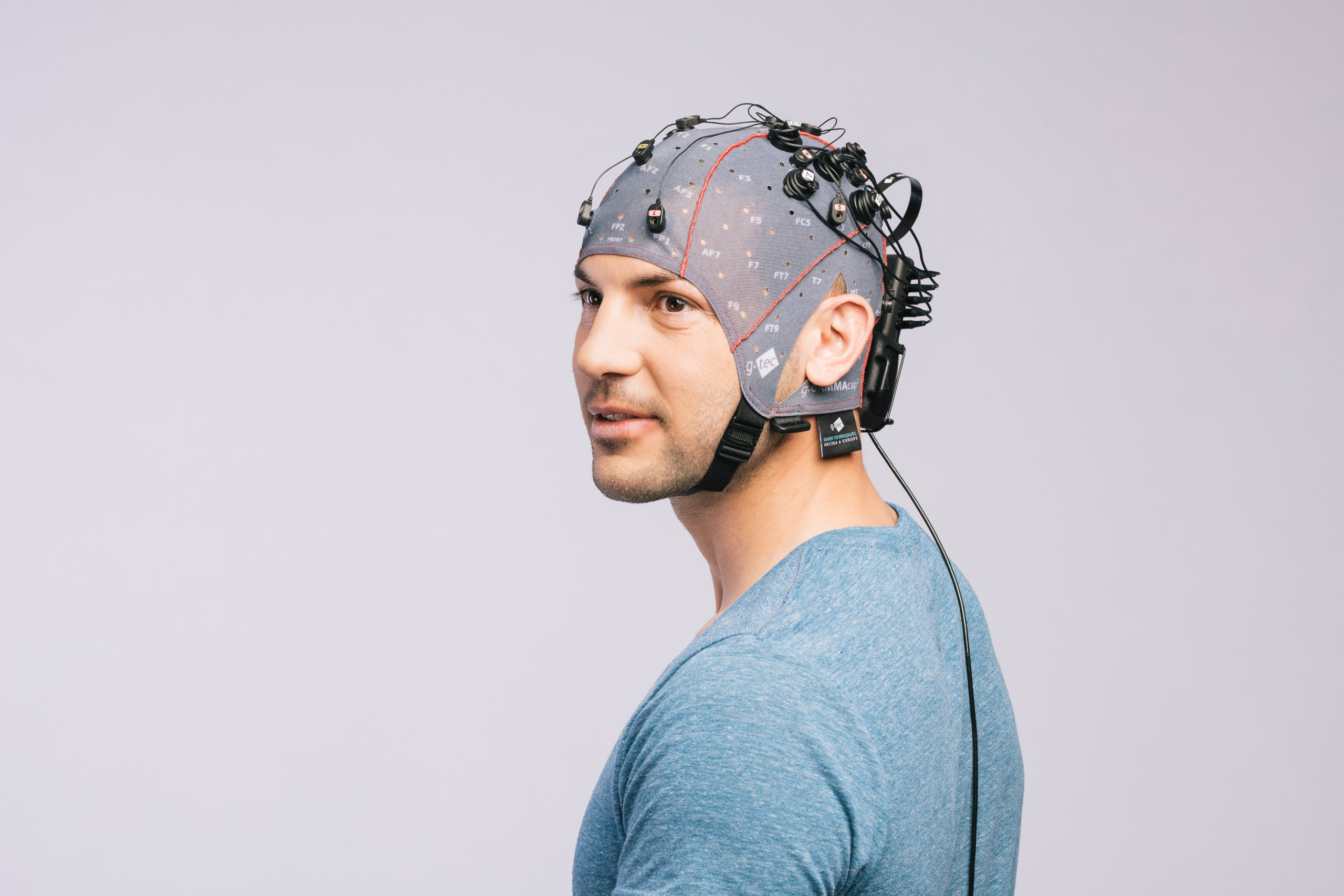
DAY 5 - APRIL 21
HUMAN-ROBOT INTERACTION WITH BCIs
08:00 CEST| Wireless EEG recordings and sports
Francisco Fernandes, g.tec medical engineering, Schiedlberg (AT)
09:00 CEST| BCIs for interacting with robotic exoskeletons
Jose Maria Azorin, Universidad Miguel Hernández de Elche, Alicante (ES)
10:00 CEST| Research on brain-computer interfaces in Shanghai
Jing Jin, East China University of Science and Technology, Shanghai (CN)
11:00 CEST| Neuroscience / BCI / Arts – a creative intersection
Camil Mihaescu, Universitatea de Vest Timisoara, Timisoara (RO)
12:00 CEST| Robotic and prosthetic interaction with BCIs
Denny Oetomo, University of Melbourne, Victoria (AU)
13:00 CEST| Neuroimaging findings of human brain changes following long-duration spaceflight to the International Space Station and during zero-g flights
Steven Jillings, University of Antwerp, Antwerp (BE)
14:00 CEST| EEG channel selection using multiobjective Cuckoo search for person identification
Zaid Alyasseri, University of Kufa (Iraq)
15:00 CEST| Error-related potentials: methods and applications
Gabriel Pires, University of Coimbra, Coimbra (PT), Polytechnic Institute of Tomar, Tomar (PT)
16:00 CEST| Art and creative expression with BCIs
Brendan Z. Allison, UCSD, San Diego, California (USA), Stephanie Scott, CSU, Boulder, Colorado (USA)
17:00 CEST| EEG and eye-tracking in neuroscience
Alexander Lechner, g.tec medical engineering GmbH, Schiedlberg (AT)
18:00 CEST| Hybrid Human-Robot Interfaces: A holistic approach to Neurorobotics
Stefano Tortora, University of Padova, Padova (IT)
19:00 CEST| Running ERP experiments efficiently
Slobodan Tanackovic, g.tec medical engineering GmbH, Schiedlberg (AT)
20:00 CEST| The g.tec configurator and the Unicorn Educational Kit
Fan Cao, g.tec medical engineering GmbH, Schiedlberg (AT)

DAY 6 - APRIL 22
THE BR41N.IO HACKATHON (1/2)
08:00 CEST| BR41N.IO Hackathon introduction
Christoph Guger, g.tec medical engineering, Schiedlberg (AT)
08:30 CEST| Unicorn Brain Interface demonstration
Martin Walchshofer, Bernard Wong, g.tec medical engineering, Schiedlberg (AT)
9:30 CEST| Motor imagery, P300, SSVEP and ECoG data-sets
Christoph Kapeller, Rupert Ortner, Johannes Grünwald, g.tec medical engineering, Schiedlberg/Barcelona (AT/ES)
10:00 CEST| Neuroadaptive Interfaces for immersive gaming and entertainment experiences: One step at a time
Reinhold Scherer, University of Essex, Essex (GB)
11:00 CEST| Start BR41N.IO and hosting institutions and team formation
Christoph Guger (AT), Maryam Alimardani (NL), Arianna Di Bernardo (IT), Enrico Sansone (IT), Abdelkader N. Belkacem (EA), Luis Emilio Bruni (DK), Hossein Dini (DK), Cosmin Bonchis (RO), Javier Mauricio, Antelis Ortiz (MX), Ferat Sahin (USA), Leonardo Ferrisi (USA), David Grayden (AU), Sam John (AU)
16:00 CEST| Storytelling & science communication in the field of neurotechnology
Harrison Canning, Colin Fausnaught, RIT, Rochester, New York, NY (USA)
18:00 CEST| All night hacking

DAY 7 - APRIL 23
THE BR41N.IO HACKATHON (2/2)
09:00 CEST| All night hacking
12:00 CEST| Passive BCIs and the recognition of personality
Manousos Klados, CITY College, Thessaloniki (GR)
13:00 CEST| Responsible research and innovation in BCI
Ricardo Chavarriaga, Zurich university of Applied Sciences, CLAIRE, Zürich (CH)
14:00 CEST| Project presentations
18:00 CEST| BR41N.IO ceremony

DAY 8 - APRIL 24
BCIs IN STROKE REHABILITATION
08:00 CEST| How to help neurological patients with g.tec’s brain-computer interfaces
Christoph Guger, g.tec medical engineering GmbH, Schiedlberg (AT)
09:00 CEST| recoveriX stroke therapy – A practice session
Marc Sebastian , g.tec medical engineering GmbH, Barcelona (ES)
10:00 CEST| Application of BCI to stroke rehabilitation: Theory and practice’
Kenneth Fong, The Hong Kong Polytechnic University (HK)
11:00 CEST| Brain-computer interfaces for rehabilitation
Mikhail Lebedev, Moscow State University, Moscow (RU)
12:00 CEST| BCI training experience with chronic patients in Israel
Nadav Schechter, recoveriX-gym Binyamina and Jerusalem (IL)
12:30 CEST| recoveriX therapy in Portugal
Jorge Alves, Cerebro, Braga (PT)
13:00 CEST| Lower limb stroke rehabilitation with recoveriX
Woosang Cho, g.tec medical engineering GmbH, Schiedlberg (AT)
14:00 CEST| BCI and TMS technology for rehabiliation
Natalie Mrachacz-Kersting, Albert-Ludwigs-University Freiburg (GE)
15:00 CEST| Brain changes track with motor recovery in a multimodal BCI-FES Intervention for stroke survivors
Alexander B. Remsik, University of Wisconsin, Madison, WI (USA)
15:30 CEST| Error Related Potential – its fast detection method and possible application in rehabilitation
Qiang Fang, ShanTou University (CN)
16:00 CEST| recoveriX treaments and strategy in Nigeria
Osaze Osayande, recoveriX-gym Lagos (NI)
16:30 CEST| recoveriX-gyms in Austria
Gerlinde Percht, recoveriX-gyms in Austria, Schladming, Vienna, Graz, Klagenfurt (AT)
17:00 CEST| Brain computer interfaces for stroke rehabilitation: clinical translation
David Lin, Massachusetts General Hospital, Harvard Medical School, Boston, MA (USA)
18:00 CEST| recoveriX therapy in Finland
Marjo Jännes-Malm, Fysioline, Tampere (FI)
18:30 CEST| recoveriX success stories from Slovenia
Andraz Stozer, recoveriX Maribor, Kranj (SVN)
19:00 CEST| fMRI and EEG studies for mental health
Tamar Flash, Weizmann Institute, Rehovot (IL)
20:00 CEST| Brain assessment parameters for stroke
Sebastian Sieghartsleitner, g.tec medical engineering GmbH, Schiedlberg (AT)
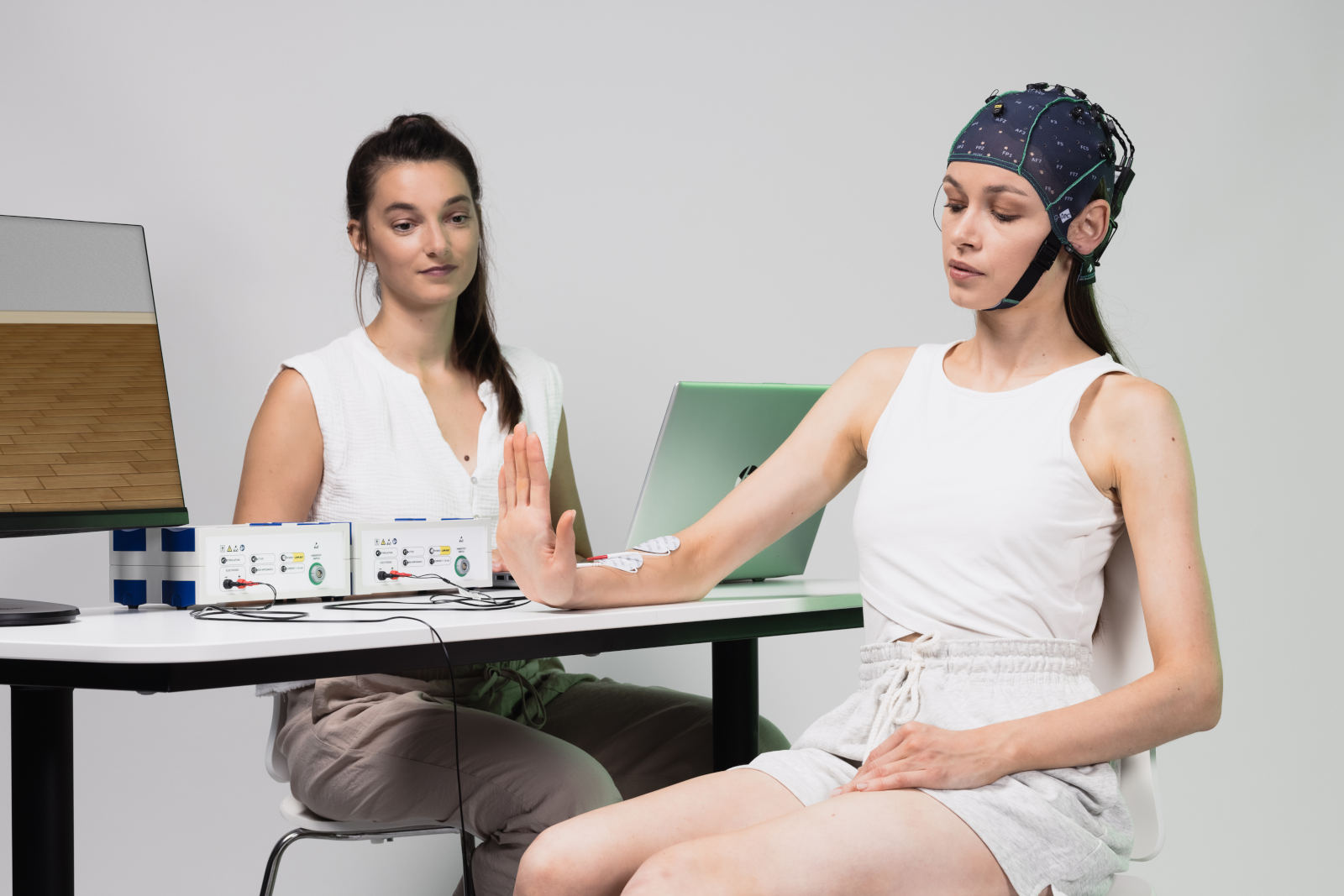
DAY 9 - APRIL 25
BCIs FOR BRAIN ASSESSMENT & COMMUNICATION WITH DOC, ALS & LOCKED-IN PATIENTS
08:00 CEST| BCI for the assessment, prediction, communication & rehabilitation of patients with disorders of consciousness
Christoph Guger, g.tec medical engineering GmbH, Schiedlberg (AT)
09:00 CEST| Brain computer interfaces for improving cognitive abilities: principles and applications
Abdelkader N. Belkacem, United Arab Emirates University, Al Ain (AE)
10:00 CEST| mindBEAGLE assessment, communication, predication, rehabilitation
Rupert Ortner, g.tec medical engineering GmbH, Barcelona (ES)
11:00 CEST| Brain-stimulation treatment options for DoC patients
Aurore Thibaut, University of Liége, Liege (BE)
12:00 CEST| Advances in decoding mental imagery and evoked potentials from electroencephalography for clinical applications and human augmentation
Damien Coyle, Ulster University, Ulster (UK)
13:00 CEST| BCIs for assessment of disorders of consciousness
Rossella Spataro, University of Palermo, Palermo (IT)
14:00 CEST| Outcome prediction in coma patients
Marzia De Lucia, CHUV, Lausanne (CH)
15:00 CEST| Resting state EEG rhythms reflecting vigilance: a window on the level of consciousness
Claudio Babiloni, Sapienza University Di Roma, Rome (IT)
16:00 CEST| Cognition in DOC patients: assessment and management
Caroline Schnakers, Casa Colina Hospital, Pomona, California (USA)
17:00 CEST| BCI for diagnosis and pharmacology for DoC treatments
Olivia Gosseries, University of Liége, Liege (BE)
18:00 CEST| Lessons learned from cooperating with neurotech industry
Cristi Salinas, Neuropsychologist, Winter Park, Florida (USA)
19:00 CEST| The mechanisms of spasticity reduction with neurofeedback –healthy and patient populations
Aleksandra Vuckovic, Ioana Susmoschi Lucas, Glasgow University, Glasgow (UK)
20:00 CEST| Neurofeedback and the neural representation of self: lessons from awake state and sleep
Andreas Ioannides, AAI Scientific Cultural Services (CY)
DAY 10 - APRIL 26
FUNCTIONAL MAPPING OF ELOQUENT CORTEX AND CORTICAL NETWORKS WITH ECOG
08:00 CEST| Exam preparation
Christoph Guger, g.tec medical engineering GmbH, Schiedlberg (AT)
09:00 CEST| Functional mapping with the ECoG and Cortico-Cortical Evoked Potentials
Christoph Guger, g.tec medical engineering GmbH, Schiedlberg (AT)
10:00 CEST| Passive functional brain mapping with ECoG for future clinical standard
Kyousuke Kamada, Mengumino Hospital, Sapporo (JP)
11:00 CEST| Running functional mapping procedures in real-time with high-gamma and ultra-high gamma
Christoph Kapeller, g.tec medical engineering GmbH, Schiedlberg (AT)
12:00 CEST| Clinical practice of high gamma activity mapping in the neurosurgical field
Takahiro Sanada, Asahikawa Medical Universit, Asahikawa (JP)
13:00 CEST| High-frequency oscillations and 3D mapping of activity of grids and stereo EEG
Mostafa Mohammadpour, Michael Jordan, g.tec medical engineering GmbH, Schiedlberg (AT)
14:00 CEST| Mapping language network for presurgical evaluations of epilepsy and tumor surgery
Riki Matsumoto, Kobe University Hospital, Kobe (JP)
15:00 CEST| Functional mapping in Pediatric Epilepsy Surgery with Stereo EEG; passive high-gamma frequency mapping vs. cortical stimulation mapping
Masanori Takeoka, Boston Children’s Hospital , Harvard Medical School, Boston, MA (USA)
16:00 CEST| Intraoperative rapid passive mapping and combination with MRI
Christoph Kapeller, g.tec medical engineering GmbH, Schiedlberg (AT)
17:00 CEST| Highly generalized spelling using a silent-speech BCI in a person with severe anarthria
Sean L. Metzger, UCSF, San Francisco, California (USA), 3rd place winner BCI Award 2022
18:00 CEST | Exploiting low-dimensional neural manifolds for neuroscientific discovery and BCI development
Lee Miller, Northwestern University (USA), Illinois (USA)
19:00 CEST| Very difficult exam
Christoph Guger, g.tec medical engineering GmbH, Schiedlberg (AT)
20:00 CEST| Certificates and Unicorn Hybrid Black winner
Christoph Guger, g.tec medical engineering GmbH, Schiedlberg (AT)
